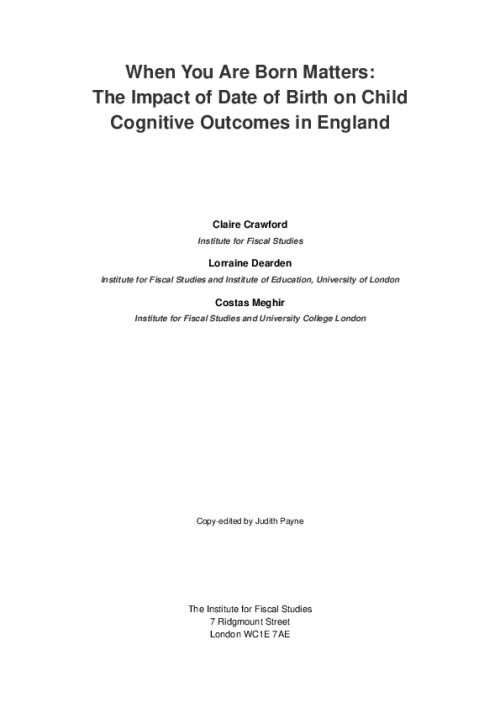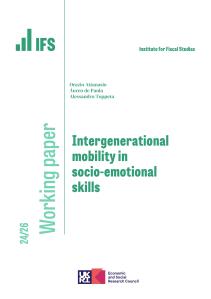Downloads

born_matters_report.pdf
PDF | 557.81 KB
<p><p><p>The impact of date of birth on cognitive test scores is well documented across many countries, with the youngest children in each academic year performing more poorly, on average, than the older members of their cohort. However, relatively little is known about the driving forces behind these differences, at least in England; nor does there appear to have been a robust discussion regarding what, if anything, should be done in light of these disparities. We address both of these issues in this report.</p></p></p>
Authors

Lorraine Dearden

Research Fellow Yale University
Costas is a Research Fellow of the IFS and a Professor of Economics at Yale University and a Visiting Professor at University College London.

Research Fellow University College London
Claire is a Research Fellow at IFS, working on the determinants and consequences of participation in childcare and education for parents and children.
Report details
- Publisher
- IFS
Suggested citation
C, Crawford and L, Dearden and C, Meghir. (2007). When you are born matters: the impact of date of birth on child cognitive outcomes in England. London: IFS. Available at: https://ifs.org.uk/publications/when-you-are-born-matters-impact-date-birth-child-cognitive-outcomes-england (accessed: 30 June 2024).
More from IFS
Understand this issue

What has been happening with university finances?
27 June 2024

Election Special: Is there a 'conspiracy of silence' between both parties?
6 June 2024

What is the two-child limit in benefits?
27 June 2024
Policy analysis

Free breakfast clubs in schools: what Labour’s plans would mean for pupils and families
25 June 2024

The uncertain course for school and college funding over the next parliament
19 June 2024

Labour’s plans to build childcare spaces in schools will nudge the market in a different direction – but not transform it
9 June 2024
Academic research

Economics of Childhood Nutrition Workshop

Higher Education Access and Funding: challenges and policy options

Intergenerational mobility in socio-emotional skills
5 June 2024